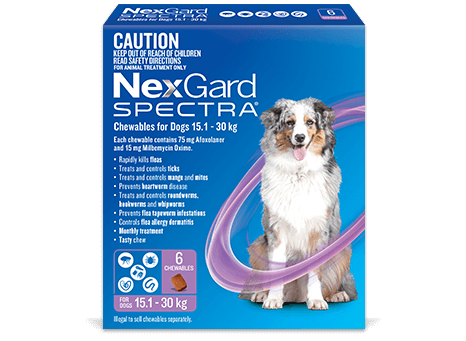Taking care of our furry friends means looking out for their health and well-being. Natural remedies offer gentle, effective solutions for many common dog ailments.
This comprehensive guide explores various natural treatments to keep your dog happy and healthy.
Introduction
Natural remedies have been used for centuries to treat various health issues in both humans and animals.
In recent years, there has been a growing interest in using these remedies for our pets, particularly dogs.
This guide will provide detailed information on natural remedies for common dog ailments, ensuring you have the knowledge to care for your pet using natural solutions.


Understanding Natural Remedies for Dogs
Natural remedies harness the power of nature to heal and maintain health. They are often less harsh than conventional treatments, making them ideal for pets.
Understanding why and how to use these remedies is crucial for effective care.
Why Choose Natural Remedies?
Natural remedies are typically safer and have fewer side effects compared to synthetic drugs.
They can be used for a variety of conditions, from minor ailments to chronic diseases.
Additionally, many pet owners prefer natural remedies to avoid exposing their pets to unnecessary chemicals.
Consulting with Your Vet
Before starting any natural remedy, it is important to consult with your vet.
They can provide guidance on appropriate treatments and dosages, ensuring the remedy is safe and effective for your dog’s specific condition.


Skin Issues and Irritations
Dogs often suffer from skin problems, which can cause significant discomfort. Natural remedies can provide relief and promote healing.
Tea Tree Oil for Skin Irritations
Tea tree oil is known for its antimicrobial properties. When diluted, it can be applied to the skin to treat irritations and minor wounds.
Mix a few drops of tea tree oil with a carrier oil like coconut oil and apply it to the affected area.
Coconut Oil and Vitamin E for Itchy Skin
Coconut oil is excellent for moisturizing and soothing itchy skin. Adding a drop of vitamin E oil can enhance its healing properties.
Apply a small amount to the affected area and gently massage it into the skin.


Oatmeal Baths for Soothing Skin
Oatmeal baths are a popular remedy for itchy skin. Grind oatmeal into a fine powder and mix it with warm water to create a soothing bath. Let your dog soak for 10-15 minutes to relieve itching and irritation.
Aloe Vera for Minor Burns and Sunburns
Aloe vera has cooling and soothing properties, making it ideal for treating minor burns and sunburns. Apply a thin layer of aloe vera gel to the affected area to reduce inflammation and promote healing.
Digestive Issues
Digestive problems can cause significant discomfort for dogs. Natural remedies can help manage symptoms and promote digestive health.
Pumpkin for Diarrhea and Constipation
Pumpkin is rich in fibre and can help regulate digestion. It is effective for both diarrhea and constipation. Add a tablespoon of canned pumpkin (not pie filling) to your dog’s food to improve their digestive health.
Ginger for Stomach Upset and Motion Sickness
Ginger is known for its ability to soothe the stomach and reduce nausea. It can be given to dogs suffering from stomach upset or motion sickness. Grate a small amount of fresh ginger and mix it into their food.
Apple Cider Vinegar for Digestive Health
Apple cider vinegar has antibacterial properties and can help with digestion. Add a teaspoon of apple cider vinegar to your dog’s water bowl to aid digestion and maintain a healthy gut.
Anxiety and Stress
Anxiety and stress are common issues in dogs, especially during fireworks, thunderstorms, or separation. Natural remedies can help calm and soothe your pet.


Herbal Remedies: Passionflower, Skullcap, Jasmine
Herbs like passionflower, skullcap, and jasmine have calming effects. These can be found in natural supplements designed to reduce anxiety in dogs. Follow the dosage instructions on the product label.
CBD Oil for Calming Dogs
CBD oil, derived from hemp, is known for its calming properties. In Australia, CBD oil can be obtained with a prescription from your vet. It is important to use the correct dosage as recommended by your vet.
Chamomile Tea for Stress Relief
Chamomile tea can help calm dogs. Brew a cup of chamomile tea, let it cool, and add a small amount to your dog’s water or food. It can help reduce anxiety and promote relaxation.
Fleas and Ticks
Fleas and ticks are common pests that can cause discomfort and health issues for dogs. Natural remedies can help control these pests without harsh chemicals.


Natural Flea Spray with Lemon and Rosemary
A homemade flea spray can be made using lemon and rosemary. Boil the peels of several lemons with a few sprigs of rosemary in water, let it steep overnight, strain, and spray it on your dog’s coat.
Using Coconut Oil to Combat Fleas
Coconut oil can be used to combat fleas. Apply a small amount of coconut oil to your dog’s coat and skin. It helps repel fleas and keeps the skin moisturized.
Diatomaceous Earth for Flea Control
Diatomaceous earth is a natural powder that can kill fleas. Sprinkle food-grade diatomaceous earth around your home and yard, and even on your dog’s bedding, to control flea infestations.
Ear Cleaning and Minor Wounds
Maintaining ear hygiene and treating minor wounds promptly can prevent infections and promote healing.
Apple Cider Vinegar for Ear Cleaning
Diluted apple cider vinegar can be used to clean your dog’s ears. Mix equal parts of apple cider vinegar and water, and use a cotton ball to gently clean the ears.
Epsom Salt and Warm Water for Minor Wounds
An Epsom salt solution can be used to clean minor wounds. Dissolve Epsom salt in warm water and use it to clean the wound. This helps prevent infections and promotes healing.
Witch Hazel for Preventing Infections
Witch hazel has antiseptic properties and can be applied to minor cuts and scrapes to prevent infections. Use a clean cotton ball to apply witch hazel to the affected area.
General Wellness
Maintaining your dog’s overall health is crucial for a long, happy life. Natural supplements can support their general wellness.


Spirulina for Immune System Boost
Spirulina is a nutrient-rich algae that boosts the immune system. It can be added to your dog’s food in small amounts to improve their overall health.
Turmeric for Anti-Inflammatory and Antioxidant Benefits
Turmeric has powerful anti-inflammatory and antioxidant properties. It can be added to your dog’s food to help with joint pain and prevent chronic diseases.
Rosemary for Anxiety and Heart Health
Rosemary is not only an antioxidant but also helps with anxiety and heart health. Add a small amount of fresh rosemary to your dog’s diet for its various health benefits.
Garlic for Detoxification and Improved Circulation
Garlic improves circulation and helps detoxify the body. It should be given in small amounts to avoid toxicity. Consult your vet for the appropriate dosage for your dog.
Kelp for Thyroid Health and Metabolism
Kelp is rich in iodine and minerals, supporting thyroid health and metabolism. It can be added to your dog’s food as a supplement.
Green Tea for Antioxidants and Vitamins
Green tea is packed with antioxidants and vitamins. It can be used as a cleaning agent for your dog’s ears or applied to hot spots to relieve itching.
Conclusion
Natural remedies offer safe and effective solutions for many common dog ailments. Always consult with your vet before starting any new treatment to ensure it is safe and suitable for your pet.


Consult Your Vet
Your vet is your best resource for ensuring your dog’s health. They can provide guidance on the appropriate use of natural remedies and monitor your dog’s progress.
Holistic Approach to Dog Health
Combining natural remedies with regular veterinary care ensures your dog receives comprehensive health care. This holistic approach promotes long-term wellness and happiness for your furry friend.











